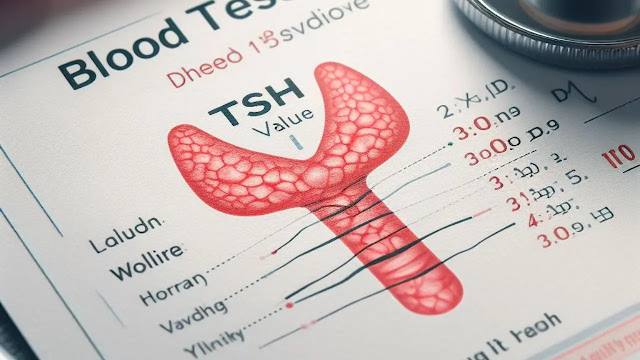Demystifying the Blood Test: What is TSH and Why Does it Matter?
Your annual blood test results arrive, and nestled amongst the cholesterol and hemoglobin levels is a mysterious acronym: TSH. But what exactly is TSH, and why does it deserve a spot on your test panel? Fear not, health-curious reader, for this article dives deep into the world of TSH, explaining its role, impact on your well-being, and how interpreting its levels can empower your health journey.
TSH Explained: The Maestro of Your Metabolism
TSH stands for Thyroid-Stimulating Hormone, a hormone produced by your pituitary gland. It acts like a conductor, orchestrating the production of essential thyroid hormones by your butterfly-shaped thyroid gland located in your neck. These thyroid hormones, in turn, are the powerhouses behind your metabolism, influencing everything from your energy levels to your mood and even your weight.
The TSH Balancing Act: Highs, Lows, and What They Mean
Ideally, TSH levels should exist in a sweet spot, ranging from 0.4 mIU/L to 4.0 mIU/L. However, imbalances can occur, leading to either:
High TSH (Hypothyroidism):
When TSH levels are elevated, it often signifies an underactive thyroid, meaning it’s not producing enough hormones. This can lead to fatigue, weight gain, sensitivity to cold, and other symptoms.
Low TSH (Hyperthyroidism):
Conversely, low TSH levels hint at an overactive thyroid, pumping out an excess of hormones. This can manifest as anxiety, weight loss, heat intolerance, and other complaints.
Why Knowing Your TSH Matters:
Early detection and management of thyroid imbalances are crucial. Left unchecked, they can impact various bodily functions and contribute to long-term health concerns. A simple TSH test, often included in routine blood work, can be the first step toward identifying potential thyroid issues and seeking appropriate medical intervention.
What medication is in an epidural
Remember
- TSH levels are just one piece of the puzzle. Your doctor might recommend additional tests to get a clearer picture of your thyroid health.
- Normal TSH ranges can vary slightly. Age, pregnancy, and certain medications can influence TSH levels. Always consult your doctor for personalized interpretation.
- Early diagnosis and treatment are key. If you experience symptoms suggestive of thyroid dysfunction, don’t hesitate to discuss them with your healthcare provider.
By understanding TSH and its role in your well-being, you actively participate in your health journey. So, the next time you see “TSH” on your blood test results, remember, it’s not just a random acronym, but a valuable clue to your body’s inner workings.

